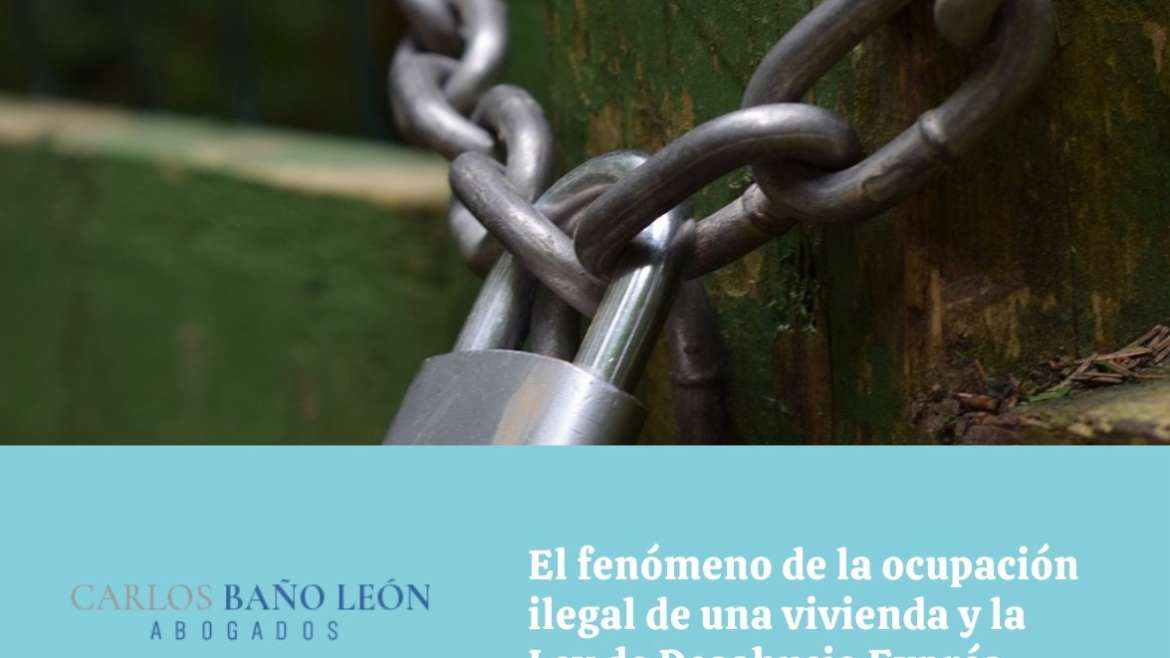The Phenomenon of Illegal Occupation of Property and the Express Eviction Law
The phenomenon of illegal occupation of a property, often known as “squatting” or breaking in, is a widespread issue closely linked to housing problems and limited accessibility.
This “squatting” phenomenon brings about divergent opinions and varied proposals, often revealing ideological, and therefore, political issues.
Different Opinions on Squatting
The constitutional right to housing and its social function is often raised by those who oppose a strictly criminal solution to this issue.
There is a growing opinion that such cases should be resolved through civil means, although this requires an adequately resourced judicial system, which unfortunately often clashes with the reality of an overburdened judicial system.
Adding to this problem is the presence of organized groups exploiting the situation for profit, creating greater insecurity for property owners. For example, these groups may monitor unoccupied properties, break in, and transfer them to third parties for a fee.
All of these actors are well aware of the illegal nature of the occupation but are willing to stay as long as possible, knowing that their actions are unlawful.
While political and social aspects of this issue deserve consideration, our goal here is to outline the current legal situation.
Situation Before the Express Eviction Law

Before the reform and subsequent approval of the Express Eviction Law, two avenues were used with limited success.
One was the criminal route, involving the potential prosecution of trespassing or property usurpation, under Articles 202 and 245 of the Penal Code, and the other was the civil route, involving a summary eviction proceeding through an expedited process.
Criminal Route
The criminal route is not generally recommended unless the occupants are caught in the act, as recovery of possession is delayed until the end of the lengthy criminal process, leaving owners without access to their property.
Civil Route
The civil route was reinforced by strengthening the expedited eviction process, aiming to provide faster solutions and signaling that the legislature prefers a civil remedy to these issues.
Express Eviction Law
Following the approval of Law 5/2018, of June 11, which amends Law 1/2000, of January 7, of Civil Procedure (the so-called Express Eviction Law) in relation to the illegal occupation of housing, new provisions were added to the verbal trial process to speed up the property recovery process for owners.
Although this represents an advance against illegal occupation, its application faces practical limitations due to a lack of resources in the courts, which often means these cases take longer than legislators originally anticipated.
Process Under the Express Eviction Law
Property owners must find a lawyer and a court representative to file a verbal eviction claim, albeit with a somewhat faster summary procedure.
The claim will be directed to the occupant without requiring personal identification, as they are often unknown. The court grants a 10-day period for the defendant to present a title of occupation. If a title is presented, a hearing is scheduled.
When the claim is admitted, the occupant is required to show their title within 10 days or face an eviction order if they lack a valid claim.
Two important aspects to note: a preliminary request for the property’s recovery can be made, and, depending on social services’ assessment, any vulnerability concerns may delay the eviction.
The Reality of the Express Eviction Law
This new law, an improvement over previous processes, is often hindered by the court system’s limitations. The practical application reveals delays as occupants’ legal representatives explore every avenue to prolong proceedings.
In our view, this regulation does not sufficiently protect property owners forced into court disputes against occupants who lack legal title. The owner must prove ownership and seek a judgment in their favor, bearing costs for legal fees, while occupants rarely face equivalent costs.
A criminal approach might better reflect the reality of the situation and should involve financial penalties and potential jail time as deterrents.
Lawyer in Alicante Carlos Baño León
If you find yourself in this situation, do not hesitate to contact the lawyers at Carlos Baño León in Alicante for assistance in navigating this difficult situation.
We have extensive experience in such cases and will advise you on the most effective, economical approach to regain possession and prevent future occurrences.
Given our experience, if your property has been illegally occupied, contact us, and we commit to filing a claim within 48 hours upon receiving the necessary documentation.
If you need more information, do not hesitate to contact the Carlos Baño León Law Firm.



